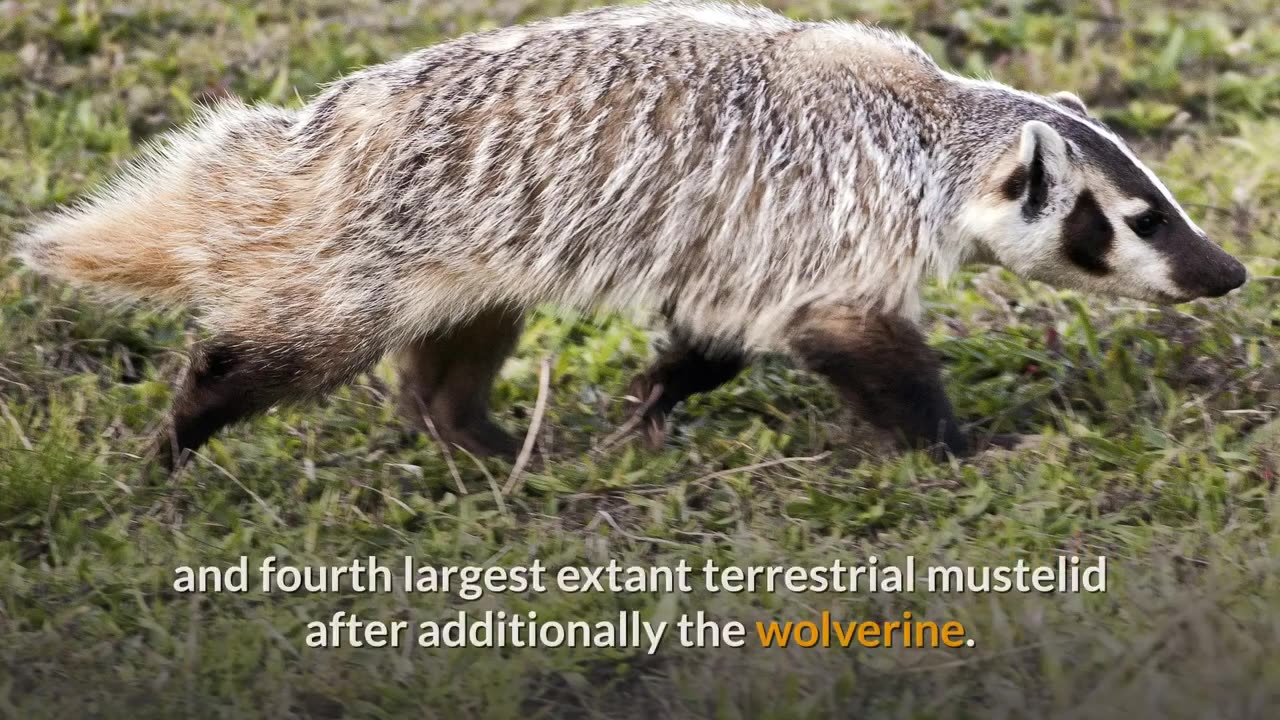Premium Only Content

Honey Badger || Description, Characteristics and Facts!
**Honey Badger: The Fearless and Fierce Predator**
The honey badger (Mellivora capensis) is a carnivorous mammal that is native to Africa, Asia, and Europe. It is known for its fearless and fierce behavior, which allows it to thrive in a variety of environments.
**Description:**
The honey badger is a medium-sized mammal that typically weighs between 9-16 kg (20-35 lbs). It has a distinctive white stripe running along its back, and its fur is thick and coarse. Its head is broad and flat, with a short snout and small eyes. The honey badger has powerful claws and strong jaws, which it uses to defend itself against predators and to hunt for food.
**Characteristics:**
* Fearless and fierce: Honey badgers are known for their bold and fearless behavior, which allows them to defend themselves against predators much larger than themselves.
* Powerful claws: Honey badgers have sharp, curved claws that they use to dig burrows, hunt for food, and defend themselves against predators.
* Strong jaws: Honey badgers have powerful jaws that are capable of crushing the shells of turtles and the bones of small mammals.
* Omnivorous diet: Honey badgers are opportunistic omnivores, which means they will eat a wide variety of foods including fruits, insects, small mammals, and carrion.
* Solitary animals: Honey badgers are typically solitary animals, except for mating pairs.
**Facts:**
* Honey badgers are also known as "ratels" due to their ability to eat rats and other rodents.
* They are found in a variety of habitats, including forests, grasslands, and deserts.
* Honey badgers are excellent diggers, and they use their powerful claws to create complex burrows.
* They are able to survive in areas with limited food resources due to their ability to eat almost anything.
* Honey badgers are protected by law in some countries due to their declining populations.
**Hash tags:**
#HoneyBadger #Fearless #Fierce #Carnivore #Omnivore #Wildlife #Animal #Mammal #Predator #Burrowing #Diggers #SolitaryAnimals #ProtectedSpecies
-
 LIVE
LIVE
Donald Trump Jr.
3 hours agoThe Left is Taking one L After Another, Live with Michael Knowles | Triggered Ep. 217
4,198 watching -
 47:17
47:17
Kimberly Guilfoyle
3 hours agoWoke Gets DOGE’d, Live with AJ Rice & Jarrett Stepman | Ep. 197
18.3K8 -
 20:11
20:11
Candace Show Podcast
2 hours agoBecoming Brigitte: Candace Owens x Xavier Poussard | Ep 6
45.9K145 -
 LIVE
LIVE
Dr Disrespect
6 hours ago🔴LIVE - DR DISRESPECT - ELDEN RING DLC - REVENGE
3,691 watching -
 1:01:52
1:01:52
In The Litter Box w/ Jewels & Catturd
23 hours agoBest Presidents' Day Ever! | In the Litter Box w/ Jewels & Catturd – Ep. 743 – 2/17/2025
70.1K49 -
 1:29:15
1:29:15
Simply Bitcoin
6 hours ago $6.51 earnedThey JUST Triggered A Global Gold Rush: $1M Bitcoin is coming! | EP 1184
68K23 -
 1:50:47
1:50:47
The Quartering
6 hours agoElon Musk's 13th Baby, Trump Attends Daytona 500, and Ramaswamy Enters the Ohio Governor's Race
91.2K37 -
 1:28:04
1:28:04
Russell Brand
6 hours agoBREAKING: UK Troops To Ukraine | Zelensky Wants “Army Of Europe” | JD Vance SLAMS EU Tyranny – SF538
164K49 -
 1:46:20
1:46:20
Benny Johnson
7 hours agoPANIC: Feds FLEE DC After Mass PURGE, Fired USAID Activists EXPOSED | Trump DOMINATES Daytona 500
153K156 -
 1:58:43
1:58:43
The Charlie Kirk Show
6 hours agoCBS Steps In It + Hockey Brawl + Judicial Standoff | Yoo, Schlapp, BigTree | 2.17.2025
147K45